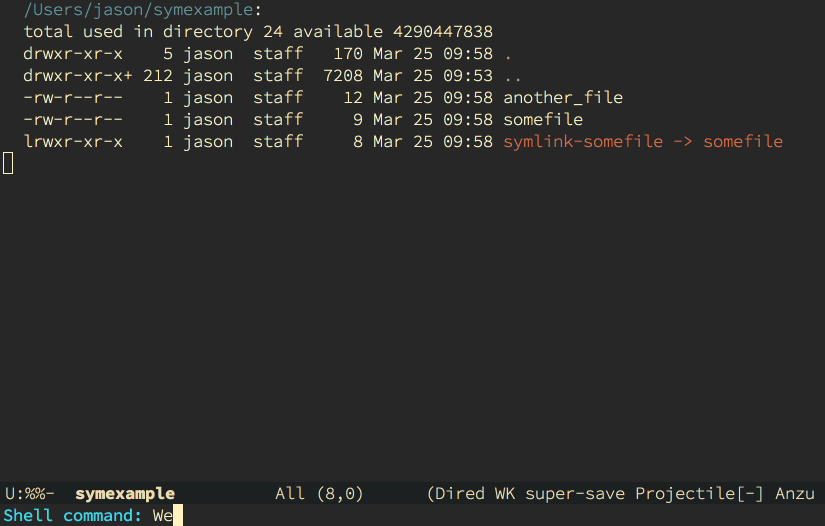When we create a symlink, the number of bytes the symlink takes up is exactly the length of the origin it points to. For instance,
$ ln -s dest link1
$ ln -s longer_dest link2
$ ls -l
lrwxrwxrwx 1 username 4 Mar 26 20:21 link1 -> dest
lrwxrwxrwx 1 username 11 Mar 26 20:21 link2 -> longer_dest
where link1 takes up 4 bytes, which is the length of dest; link2 takes up 11 bytes, which is the length of longer_dest. Therefore, symlinks are in fact no more than the destination path stored in plain text. So I am wondering if it is possible to edit (the destination) of a symlink in text editors, preferably Emacs. I googled for a while and couldn't find anyone talking about this. Note that this question is purely out of curiosity; I know full well that I can overwrite a symlink by ln -f -s.

